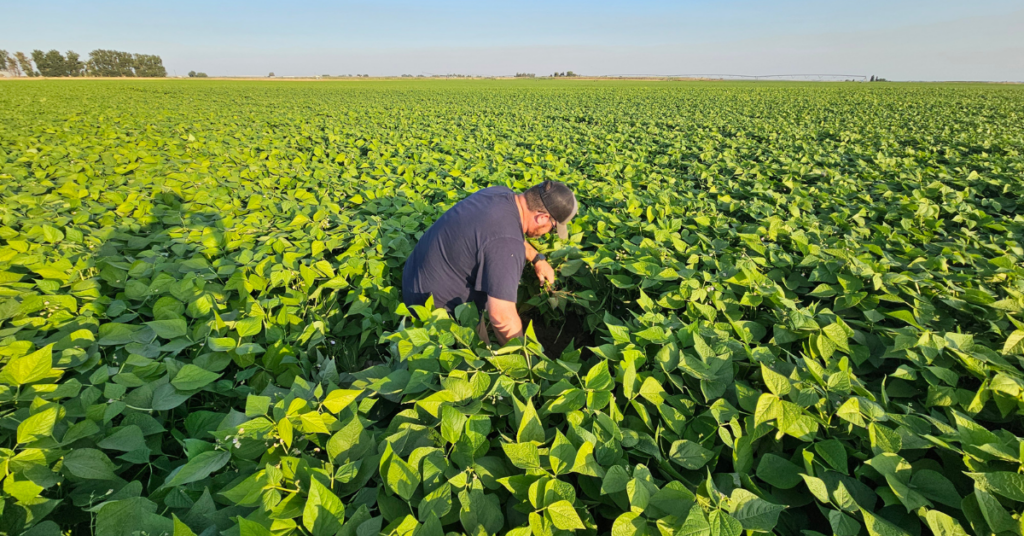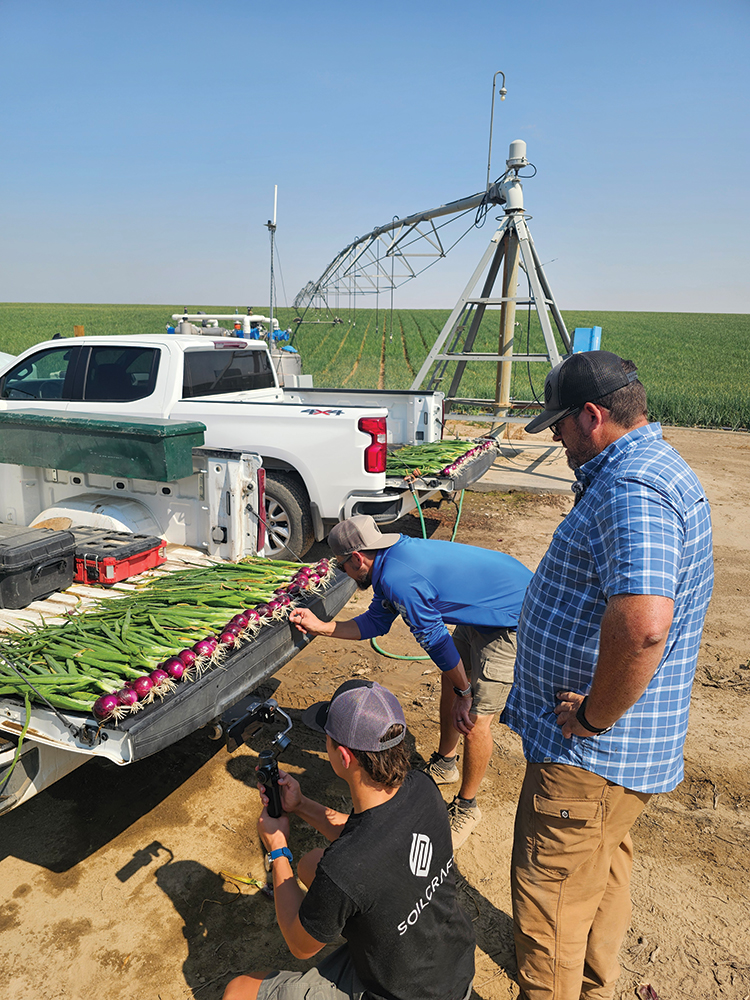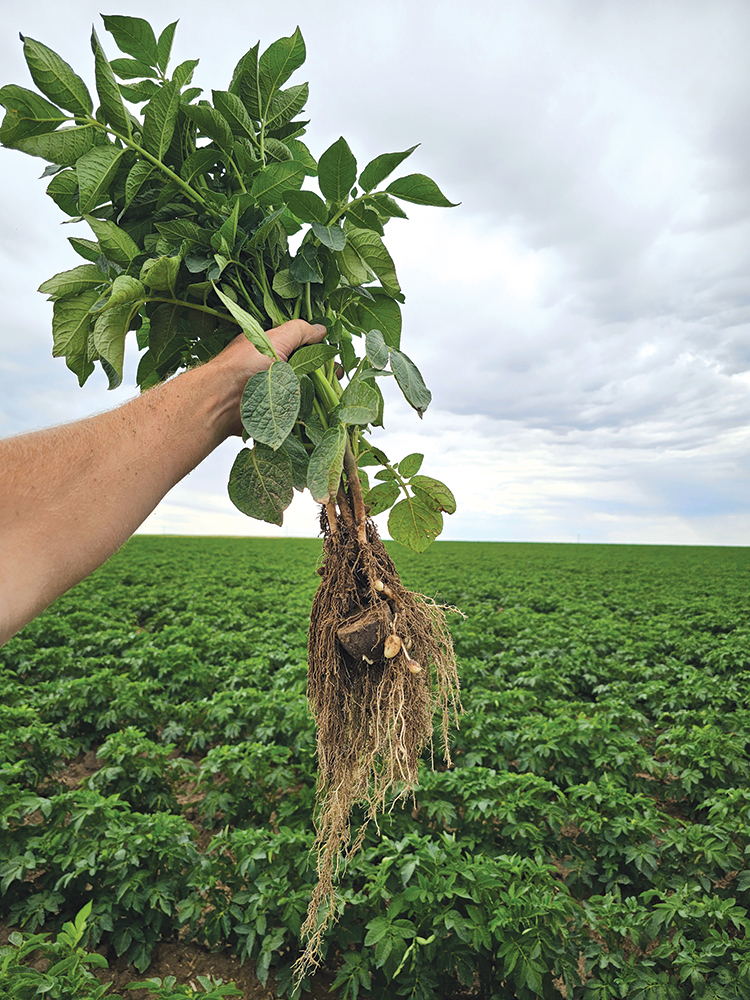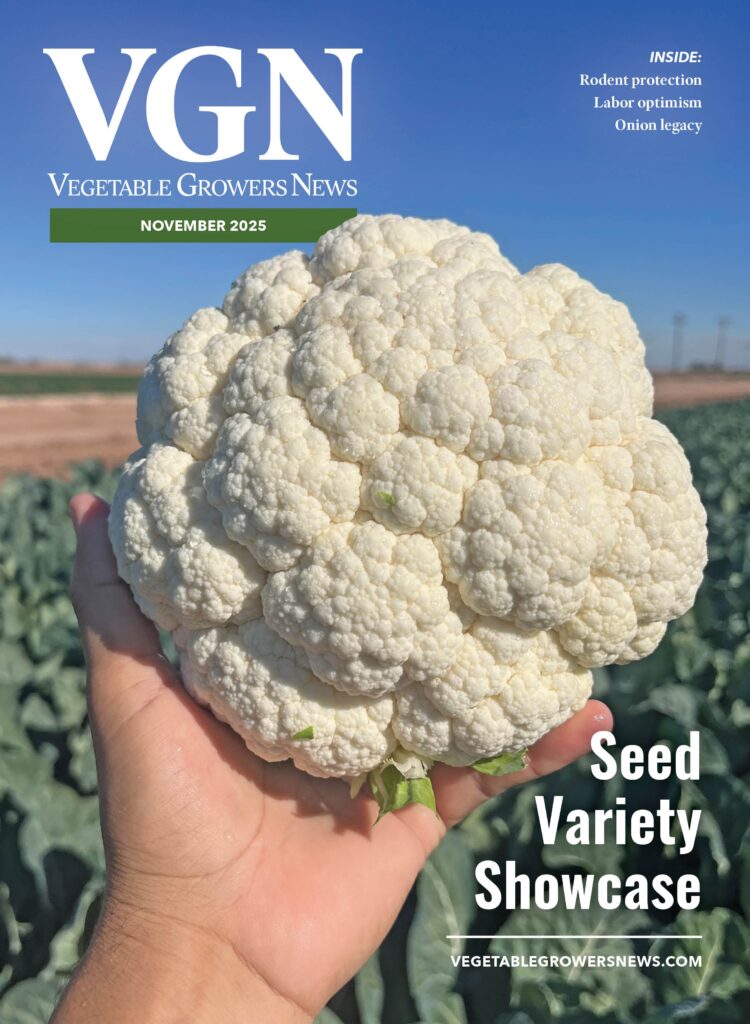
Sep 20, 2024Earth-friendly practices reinvigorate land, aid grower efficiencies
Trent Graybill, regenerative agronomist and co-founder of Soilcraft Inc. in Zillah, Washington, helps growers adopt regenerative agriculture practices that reduce environmental harm and improve long-term soil health. Although the phrase lacks formal definition or regulation, Graybill said awareness continues to grow among both growers and consumers.
“Growers are more open than ever to new methods,” Graybill said. “Some of the same old practices aren’t working as well as they used to. With resistance issues in diseases, insects, and weeds, farmers know chemistry alone isn’t enough. They’re asking: what other options do we have?”
Soilcraft trials include regenerative biological products and chemical treatments for red onions affected by pink root fungal disease.
Boosting efficiencies and profits
Graybill emphasized the regenerative agriculture practices helps growers improve soil health, which reduces pest and weed pressures. These methods can also increase soil efficiency, cutting back the number of passes growers make across fields. “If products with less variability increase efficiency, that can make a big difference to a grower’s bottom line,” he said.
Better soil also leads to higher-quality crops. When crops store longer, growers can access premium markets. “It starts with the soil,” said Graybill, who is also a certified crop advisor (CCA) and agricultural pest control advisor (PCA). “As we regenerate and build that up biologically and mineral-wise, fewer inputs are needed.”
New tools and testing
Adopting regenerative agriculture practices requires investment. Soil that has been depleted for decades needs rebuilding, and changes don’t always reduce costs right away. Still, new testing tools, such as sap and biological soil analysis, give growers insights into deficiencies and toxicities. By addressing long-term cropping system imbalances, growers can reduce chemical use.

Adding carbon to nitrogen applications can also improve efficiency. Though not always cheaper, these adjustments can deliver better plant health. Healthier plants with less disease allow growers to add different compounds to foliar sprays or fertilizers, lowering disease pressure biologically rather than chemically. Cover cropping and other methods can improve cropping systems without completely remaking them.
Embracing the biological world
Graybill said the growing use of biologicals excites him. “We’ve been taught that germs are all bad, but it’s really an imbalance between good and bad organisms,” he explained. Beneficial bacteria, fungi, and microorganisms produce antibiotics, growth hormones, and minerals that help plants thrive. “We can use these natural organisms to outcompete pathogenic ones,” he said.

As regenerative practices expand, growers can begin replacing some chemical or pesticide inputs with biological solutions. These approaches renew degraded systems and create stronger, healthier plants.
– Doug Ohlemeier, Assistant Editor
















